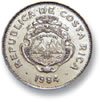The “new” AdC – a question of content – Abreu Advogados
The leadership and structural changes recently experienced by the Portuguese Competition Authority (Autoridade da Concorr̻ncia РAdC) mark a new chapter in the development of competition enforcement, believes Miguel Mendes Pereira, partner at Abreu Advogados in Lisbon, and formerly lead legal adviser with the AdC.
‘The Competition Authority was established under the prior leadership of Abel Mateus who did much to help raise the profile of competition issues in Portugal and the role of the AdC. Under the new President, Manuel Sebastião, the aim is clearly to consolidate its position and to perhaps renew its focus.’
The appointment of Sebastião – he is an economist and former board member of the Bank of Portugal – was greeted with surprise by some, says Mendes Pereira, who nonetheless believes he may help bring a ‘fresh pair of eyes’ to Portuguese competition issues.
But despite such change, the responsibilities of the AdC will remain largely the same although its priorities may now begin to differ, he suggests.
‘The role of the AdC is codified. It has no specific sector responsibilities but there is a sense that it is looking to work more closely with industry regulators, for example, in areas such as merger control and dominance.’
Notably he sees a growing emphasis towards the media and telecommunications sectors, following the spin-off from Portugal Telecom of PT Multimedia, and the subsequent increase in competition among domestic television, telephone and broadband providers.
‘Structural issues, such as the severing of copper and cable networks, have been achieved but issues remain around access to premium content. This is a clear differentiator between providers and there is now much interest in exclusivity agreements, specifically those relating to film and football rights.’
Exclusivity agreements may not themselves prove contentious so long as they are ‘within reason’, explains Mendes Pereira.
‘A number of European jurisdictions allow for exclusivity, so long as the agreements entered into are not too long or too wide in their reach – agreements average around three years – although there are often differences between free-to-air and pay-to-watch services.’
While there is no doubt about the new impetus, what will be of interest to competition practitioners, he suggests, is viewing how the AdC tackles such high value and high profile issues.












